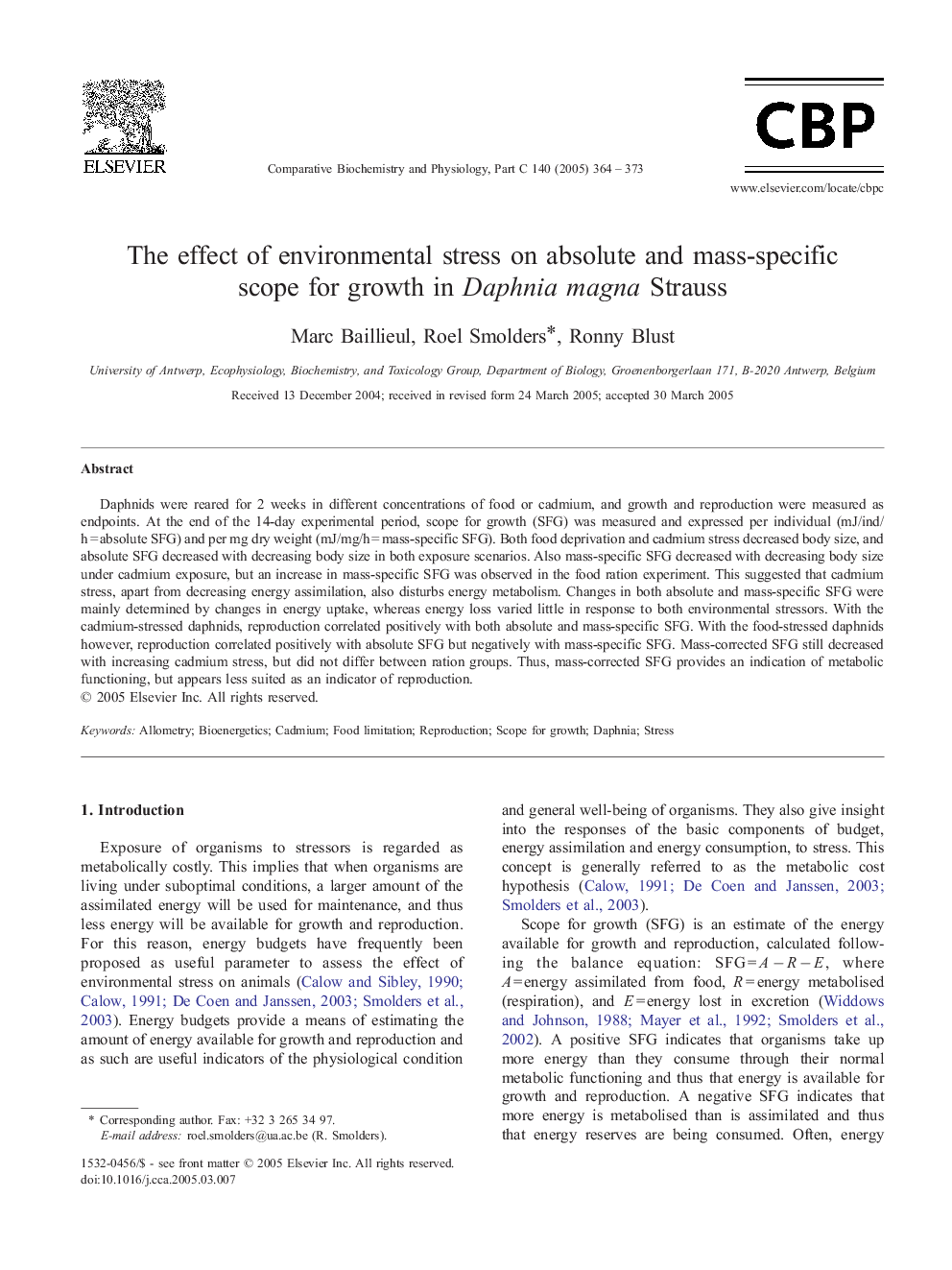| Article ID | Journal | Published Year | Pages | File Type |
|---|---|---|---|---|
| 9889771 | Comparative Biochemistry and Physiology Part C: Toxicology & Pharmacology | 2005 | 10 Pages |
Abstract
Daphnids were reared for 2 weeks in different concentrations of food or cadmium, and growth and reproduction were measured as endpoints. At the end of the 14-day experimental period, scope for growth (SFG) was measured and expressed per individual (mJ/ind/h = absolute SFG) and per mg dry weight (mJ/mg/h = mass-specific SFG). Both food deprivation and cadmium stress decreased body size, and absolute SFG decreased with decreasing body size in both exposure scenarios. Also mass-specific SFG decreased with decreasing body size under cadmium exposure, but an increase in mass-specific SFG was observed in the food ration experiment. This suggested that cadmium stress, apart from decreasing energy assimilation, also disturbs energy metabolism. Changes in both absolute and mass-specific SFG were mainly determined by changes in energy uptake, whereas energy loss varied little in response to both environmental stressors. With the cadmium-stressed daphnids, reproduction correlated positively with both absolute and mass-specific SFG. With the food-stressed daphnids however, reproduction correlated positively with absolute SFG but negatively with mass-specific SFG. Mass-corrected SFG still decreased with increasing cadmium stress, but did not differ between ration groups. Thus, mass-corrected SFG provides an indication of metabolic functioning, but appears less suited as an indicator of reproduction.
Related Topics
Life Sciences
Biochemistry, Genetics and Molecular Biology
Biochemistry
Authors
Marc Baillieul, Roel Smolders, Ronny Blust,
